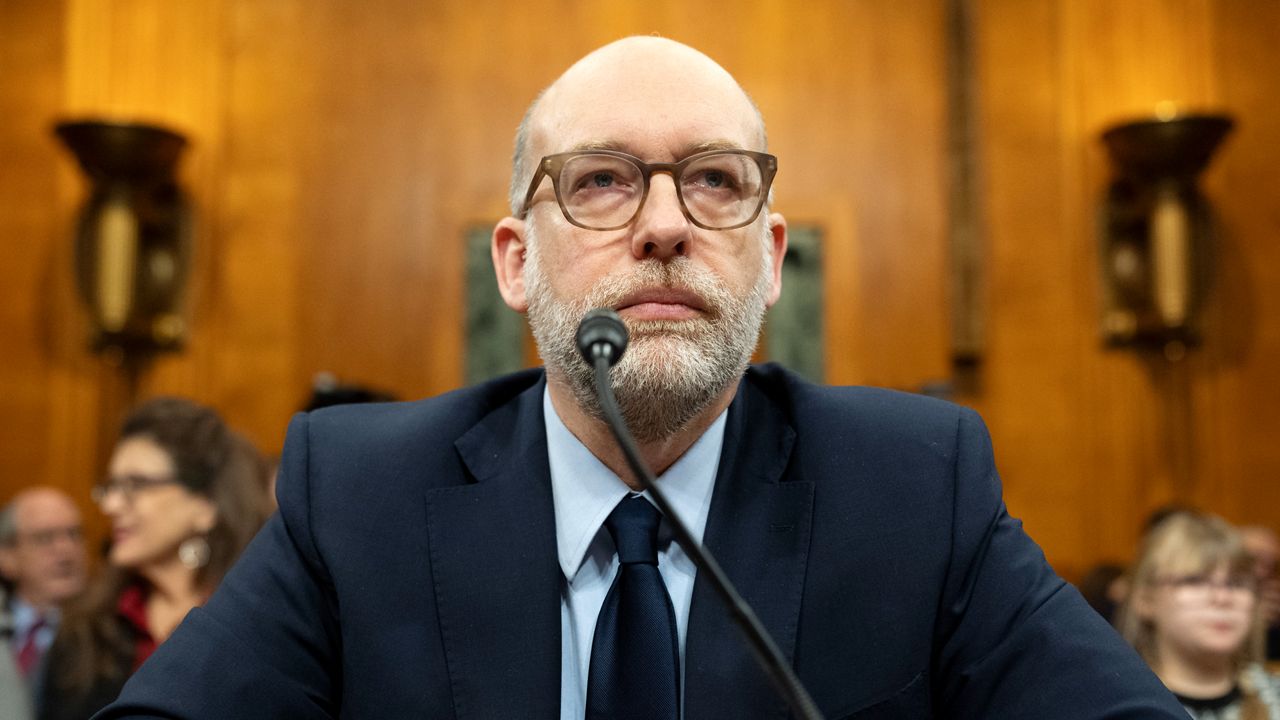WASHINGTON — The White House may look to bypass Congress in its quest to fully implement some of the spending cuts brought about by the widespread government downsizing campaign by the U.S. DOGE Service, according to Office of Management and Budget Director Russell Vought.
Appearing on CNN’s “State of the Union” on Sunday, Vought made the case that the White House has “executive tools” it can utilize that would allow it to avoid having to ask Congress — which the Constitution gives the power to control government spending — to pass legislation to formalize all cuts.
He went on to argue that before a crackdown in the 1970s, including the Impoundment Control Act of 1974, the executive branch had freedom to seek to spend less to carry out laws. The Impoundment Control Act was passed in response to former President Richard Nixon's moves halting certain federal funds approved by Congress. It established a formal process for such attempts to be reviewed by the legislative branch, thus reigning in a president’s ability to withhold spending.
“If you have $100 million that Congress says we want you to go and use for particular use and you can do it less, for 200 years, that was totally appropriate,” Vought said. “And since the 1970s, that has changed and has led to massive waste, fraud and abuse.”
The budget chief insisted — in the face of skepticism, particularly from Democrats about the legality of it all, that such a move was legal.
“Well, they're wrong. We're not breaking the law,” Vought said of what he would say to critics. “Every part of the federal government, each branch, has to look at the Constitution themselves and uphold it, and there's tension between the branches.”
Asked if his goal was to get the Supreme Court to rule that the Impoundment Control Act is unconstitutional, Vought did not directly answer, but he said the White House is not taking the option of withholding congressionally-appropriated funds from being spent “off the table.”
“We're certainly not taking impoundment off the table,” he said. “We're not in love with the law. It's a law that came after 200 years of precedent and history at the lowest moment of the executive branch.”
The topic of impoundment was sparked by a question about the initial request, known as a rescissions package, to formally implement about $9 billion in cuts made by DOGE that the administration is preparing to send to Congress this week. Vought said the administration’s approach to formalizing the rest of the cuts would depend in part on how its first request goes.
“We want to see how this first bill does," he said. "We want to make sure it's actually passed. It's the first of many rescissions bills. Some, we may not actually have to get Congress to pass the rescissions bills.”
Vought's comments come as Elon Musk — who spearheaded DOGE over the first 130 days of President Donald Trump’s second term but has since formally left his role — criticized the legislation that seeks to implement Trump’s priorities on the border, defense and taxes for increasing the budget deficit and undermining the work of DOGE instead of implementing its cuts. The package, known as the One Big Beautiful Bill, passed the House last month but still needs to work its way through the Senate.
House Speaker Mike Johnson, R-La., defended his chamber’s passage of the bill in response to Musk’s criticism by saying DOGE cuts would be incorporated by Congress once the White House sends rescissions bills through the regular 2026 fiscal year budget process.
Some Senate Republicans, namely Sen. Rand Paul of Kentucky, have expressed similar concerns to Musk about the bill’s impact on the nation’s debt. In an appearance on CBS’ “Face the Nation” on Sunday, Paul argued White House officials “absolutely have to use a recession” to implement DOGE cuts but did not weigh in on whether it would be legal without Congress' approval.
“It's a great tool to cut spending,” Paul said. “If they don't use it, it will be a huge wasted opportunity.”




